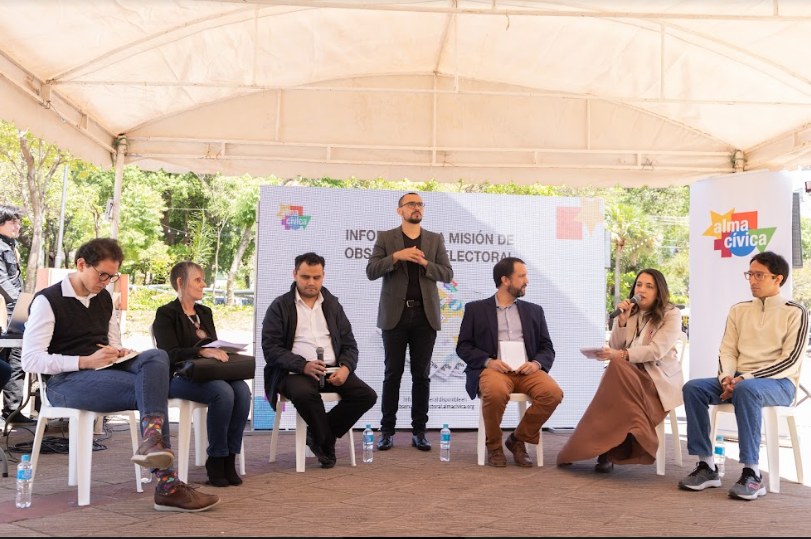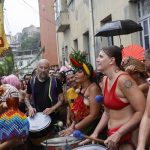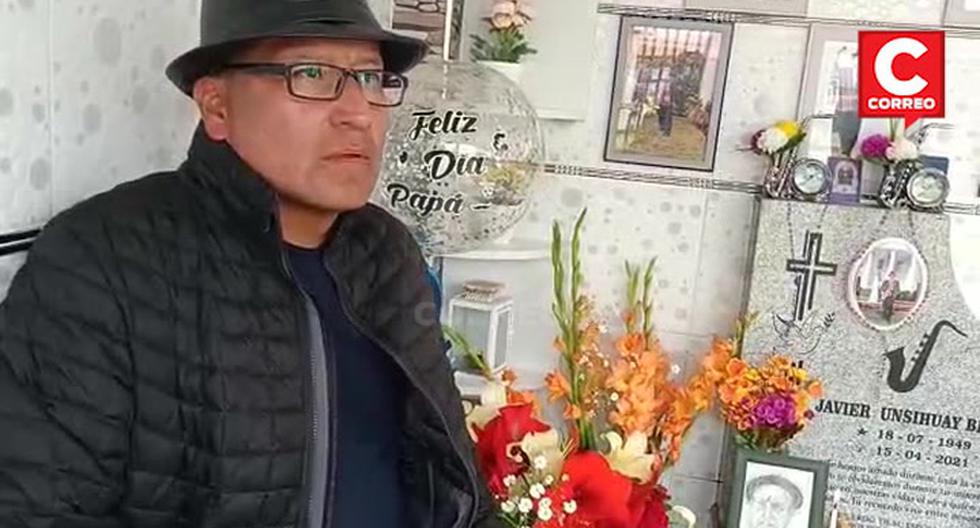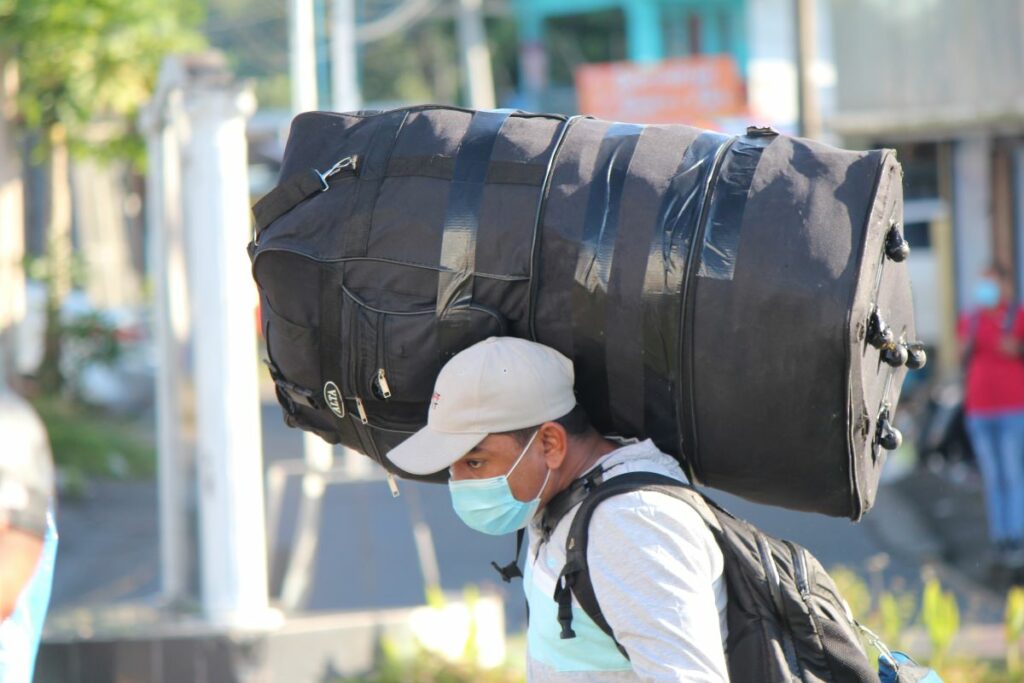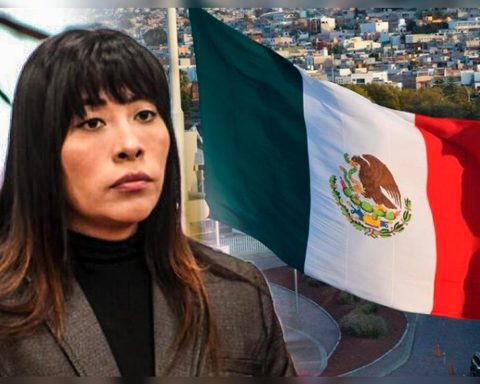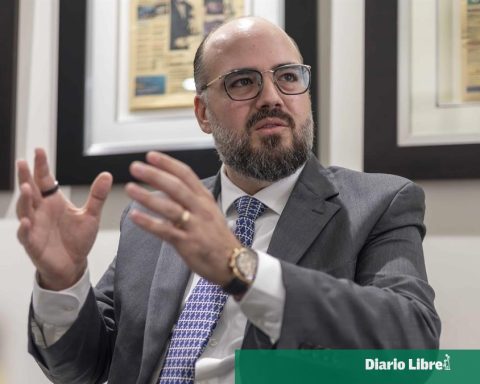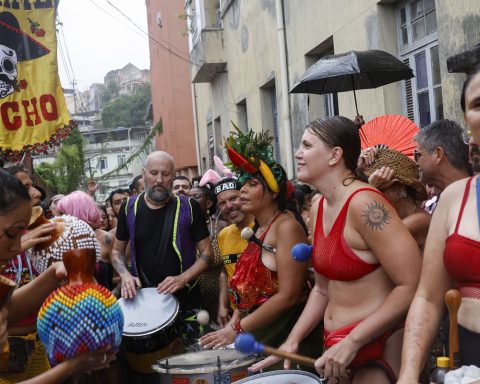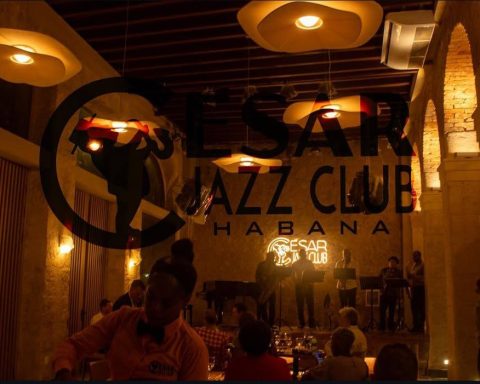The presentation took place on Wednesday, November 2, from 10:00 to 11:30, in the Plaza de la Democracia. It was attended by Minister Jorge Bogarín, Vice President of the Superior Court of Electoral Justice. The event also featured a discussion on the role of citizens in electoral observation and its importance within the process of strengthening democracy.
The discussion was led by Olga Caballero, executive director of Alma Cívica, Dania Pilz, from the organization Decidamos; Ricardo Zelada, observer volunteer; Ariel Ruíz Díaz, reference for people with visual disabilities; Eduardo Carrillo from TEDIC Technology and Community; and Camilo Filártiga of the International Institute for Democracy and Electoral Assistance (International IDEA).
in the report the positive and negative aspects revealed by the volunteers are detailed. They highlight the excessive use of assisted voting, the taking of photographs inside the dark room and electoral propaganda.
The implementation of new technology in the electoral system and the application of the unblocking of lists and the preferential vote made the 2021 municipal elections have great historical and democratic value for our country. “In this line, we consider it extremely important to collaborate with the evaluation of the electoral day process, from a technical and impartial perspective to identify relevant aspects, and, based on this, establish recommendations for the continuous improvement of the democratic process”, highlighted Olga Caballero, executive director of Alma Cívica.
In this contextthe National Electoral Observation Mission aimed to bring together citizens interested in observing and collecting information on the experience of voters with the new voting machines, to know if it helped them or not to elect the candidates of their preference and if the modality of unblocked lists influenced or not in the greater citizen participation.
Also read: In Guairá, a vote will be held on January 1 to elect the new governor
“The results made it possible to observe that irregularities still persist in the electoral process, such as the excessive use of assisted voting by several voters, the issuance of photographs that could presumably be used in the practice of buying votes, electoral propaganda in the vicinity of the polling places and the presence of several citizens who presented themselves as electoral consultants, being a role that is not established by the Electoral Justice”, expressed .
A) Yes, 2,000 volunteers, from 16 departments and 161 districts, completed three axes during the electoral day of October 10, 2021, for the purpose of recording information about the elections. They were based on different key points, the first, an observation was made in the territory, which considered the three main moments of the voting day: opening, during the day and closing; the second was a citizen perception survey in the locals, including questions about preferences towards young candidates, female participation in public office, technology and accessible voting. Finally, a media monitoring, started 10 days before voting day.
This general report will accompany the preliminary one presented to the Superior Court of Electoral Justice last October, where the organization had already detailed some data found by observers during election day.
during the opening
A situation that the MOEN confirmed repeatedly was the logistical assistance, known as “carreo”, aimed at voters within a radius of 100 meters around the polling place by representatives of political parties. This was reported by 76.2% of the observers in the covered polling places.
Central and Capital were the departments where the greatest situations of “carrying” of voters were observed. When considering the department of Central, the cities of San Lorenzo, Capiatá, Luque, Fernando de la Mora and Lambaré had more polling places with this type of situation, taking into account that the coverage of the observers in these localities has been the majority.
Secondly, cases of political violence during voting were particularly worrying and a phenomenon that is perceived to be on the rise. During election day, the Alma Cívica field team recorded acts of violence or disturbances during the opening in 41% of the polling places. The cases occurred mostly in Central and Capital.
Course of the day
In relation to the number of voters waiting in line to take advantage of the vote, in 95.1% of the polling stations observed there were more than 10 voters lining up, so a good turnout can be assumed.
In these elections, with the change in the voting system, both due to the introduction of preferential voting and the use of voting machines, it became more than necessary to have official assistance recognized by the electoral authorities, members of table and proxies present at the polling places. For this reason, during the voting day, 94.7% of the observers recorded the presence of help desks, with a voting machine and the presence of personnel from the Electoral Justice to provide information to the electorate.
On the other hand, the MOEN also observed in 54.5% to the same person to help, either guiding voters to where their polling station was or about the voting procedure, showing that this figure was probably important because of the innovations (voting machine) introduced in these elections.
Regarding the guarantee of the secret ballot in the polling places, in the Central Department, specifically in the cities of San Lorenzo, Fernando de la Mora, Luque and Capiata, there was a greater obstacle to exercising that right, as well as in the city of Asunción.
You may also be interested in: More than 800 people ask to vote at home in the April elections
during lockdown
Due to the new voting procedure with the electronic machines, the printing of results certificates and tally sheets could be done in a few hours. In this way, the transmission of preliminary electoral results (TREP) was a process that made it possible to make the results of the elections transparent in the shortest possible time, ensuring that the citizens, the media and the candidates for the different positions in dispute have a information prior to judgment and final computation.
perception survey
A 85.8% of those surveyed confirmed their trust in electronic voting machines, 14.2% responded negatively.
In relation to electronic voting, the respondents agreed on the following points: transparency, security, trust, accessibility, practicality, inalterability, effectiveness, precision, agility, speed, ease, innovation, discretion, systemic, confidentiality and accuracy.
On the other hand, from the percentage of people with distrust, statements emerged such as: it is insecure, the vote did not appear on the screen, there may be fraud in the counting of votes, the voting machines may be adulterated, technical failures of the machines and impressions, difficulty of access for the elderly or people who do not know how to read and write.
The general report is available online and is freely accessible to the public at almacivica.org/observacion-
About Civic Soul
Alma Cívica is a platform that provides support, encouragement and collaboration to a network of ethical, talented and effective citizens who contribute to the development of their localities and to democracy in society.
It works in defense of democratic values, such as justice, social equity, freedom and solidarity at the district level, with people and young people involved with their city.
